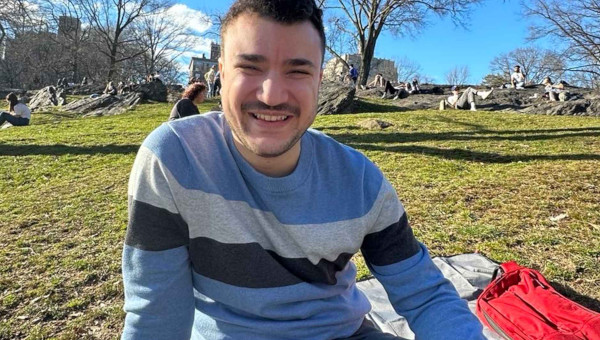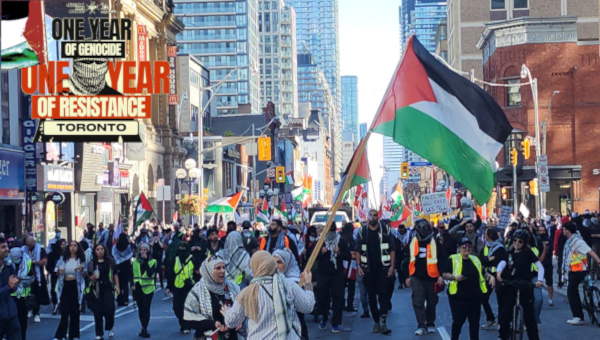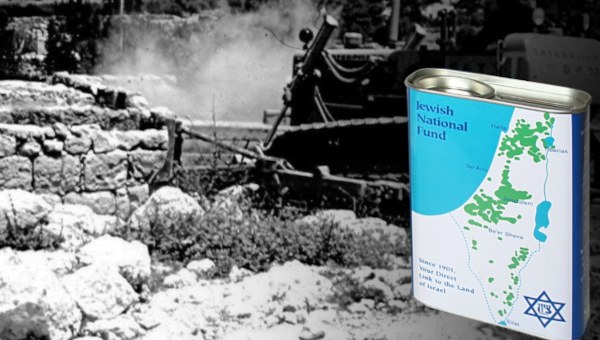Israel’s Historical Mistake
No matter how the current war plays out, it is certain that Israel has made a big historical mistake in entering Gaza.
On Saturday night, one week after the start of Operation Cast Lead in the Gaza Strip, the Israeli ground operation began. Israeli Forces began deploying combat units to surround Hamas’ main power base, the declared goal of which is “not to chase after and destroy every last rocket launcher, but rather to break the Hamas’ resistance.” Israel believes that the ground incursion into Gaza will significantly damage Hamas’ standing army and give its leadership a clear sense of the threat to their rule.
Israeli Foreign Minister Tzipi Livni was clear from the beginning. “The state of Israel, and a government under me, will make it a strategic objective to topple the Hamas regime in Gaza,” she said
at a meeting of her Kadima party almost a week before the war began. Indeed, the call to remove Hamas is reiterated by most of Israel’s prominent political figures.
The Israeli operation poses a serious risk to Hamas’ hold on Gaza. In addition to eleven days of intense military pressure, Hamas is also contending with political and economic difficulties from an 18-month siege imposed by Israel. That said, it is not safe to assume that Hamas will collapse under the Gaza blitzkrieg.
However broken and destabilized by the pressure, all Hamas really has to do is survive.
Even after suffering for 18-months under a brutal blockade, the majority of Palestinians in the Gaza Strip support the Hamas regime.
According to a public opinion survey conducted by the Al-Mustiqbal Center in Gaza a week before the invasion began, 52% of those surveyed said they “would vote for Hamas” in the upcoming elections for the Palestinian Legislative Council. Only 13% of those surveyed said they would vote for Fatah. Indeed, most public opinion surveys that have been conducted as of recent in the West Bank and Gaza indicate this trend. Considered the most senior Hamas official in the West Bank, Sheikh Hassan Yousef:
It should be said that we don’t live in the clouds. We’re not disconnected from the ground, but live among the people and are well aware of the reality. We read the situation in Israel, the region and the world very well, and we are well connected to the reality and assess it… A government can be removed by force, just as Saddam Hussein’s government was removed in Iraq. You can’t get rid of us.
Sheikh Yousef’s words are echoed by the head of the Lebanese political group Hezbollah, Hassan Nasrallah, who notes that the social and political reality of the Hamas regime will prove extremely difficult for Israel’s ground invasion “because of the one and a half million residents who are embracing the resistance.”
In the meantime, it looks like Israel’s plan for Gaza is progressing as planned. Over 500 dead. Over 2800 injured. Chaotic scenes in hospitals with entire families killed in the attacks. The damage done to Israel by Hamas since its inception is nothing compared to what Israel did in the first 3.4 minutes of the Gaza blitzkrieg.
The question is how much time the army has left. On the diplomatic front, the UN Security Council has proved inadequate to deal with Israeli aggression as the U.S. has thus far effectively blocked two calls for a ceasefire. Remarkably, at a time when the military invasion is escalating on the ground and civilian casualties are swiftly rising, the Security Council has
actually downgraded its response, refusing even to grant a formal press statement. Further, the international community – mostly the U.S. and Egypt – is giving Israel time to carry out the ground offensive, to severely damage Hamas’ hold on Gaza. Indeed,
Israeli diplomats report that Egypt’s support for Israel in the war with Hamas has “been a pleasant surprise for Jerusalem.” Like other regional actors, Egypt wants to see Hamas bleed before it assumes the role of mediator.
While a weakened Hamas may improve the chances of achieving an agreement of interest to these states once the fighting settles, the cost of giving Israel free reign to conduct its genocidal attacks may be too much for the region to handle. Hamas must be understood as a creature of the occupation. It is a response to the occupation, to years of failed peace processes neglecting the basic demands and legally enshrined rights of the Palestinian people. In fact, most of Hamas senior leadership was raised under the occupation. They were the Children of the Stone of the Intifada. And while the Children of the Stone are not made of stone, no Fatah leadership would last if it rolls into Gaza on Israeli tanks.
So who will fill the power vacuum in the potential absence of Hamas? What type of regime will emerge after this brutal military incursion? Whatever party that comes into power in Gaza will inhabit a political and social environment void of restrictions imposed by international law or principles of human rights and dignity. Through their blatant disregard for human life, Israel and its allies have effectively placed Gaza outside the human rights discourse. They have ensured that similar to the hundreds of innocent civilians with scars documenting the Gaza blitzkrieg, the faction that seizes control over the Strip will carry the political scars of this grotesque invasion.
Operation Cast Lead has thus far succeeded in creating a “new security reality” in the region, but this reality may not be one Israel is able to contend with. •
DEMONSTRATE AGAINST
THE ISRAELI ASSAULT ON GAZA!
LIFT THE SIEGE!
WHEN: 11am Saturday January 10, 2009
WHERE: Israeli Consulate, 180 Bloor St West, Toronto.
As the Israeli ground, air and sea assault continues on the civilian population of Gaza – we need to continue mobilizing against these war crimes.
At least 540 Palestinians have been killed and thousands injured in the single largest massacre in Gaza since Israel illegally occupied the area in 1967.
These latest war crimes occur in the context of official Canadian complicity with Israel’s illegal siege, bombardment and starvation of the civilian population in Gaza. We must denounce this on-going support – including the intensification of bilateral military, political and economic links between Canada and Israel. Palestinian civil society continues to urge solidarity in the form of a boycott, divestment and sanctions campaign until Israel complies with international law. This is the time for people of conscience to take up this call from Palestine.
Last Saturday, over 10,000 people rallied in Toronto in the largest Palestine solidarity demonstration in decades. This coming Saturday, millions of people across the globe will return to the streets in internationally coordinated demonstrations against the Israeli onslaught.
Join us this Saturday to demand that the Canadian government call for an immediate halt to Israel’s attacks and an end to the siege of Gaza!
CONTACT:
Palestine House – info@palestinehouse.com
Demonstration Organized By:
Palestine House
Canadian Arab Federation
Coalition Against Israeli Apartheid
Canadian Union of Public Employee (Ontario)
Canadian Union of Postal Workers
Steel Workers – Toronto Area Council
Canadian Peace Alliance (see full listing of events)
Toronto Coalition to Stop the War
Not in Our Name – Jewish Voices Opposing Zionism
International Jewish Anti-Zionist Network Toronto
Indpendent Jewish Voices
Yosher – Jewish Social Justice Network
Women In Solidarity with Palestine
Muslim Unity
Educators for Peace and Justice
Canadians for Justice and Peace in the Middle East
Near East Cultural and Educational Foundation
Canadian Forum for Justice and Peace in Sri Lanka
Muslim Association of Hamilton
Canadian Druze Society
Canadian Syrian Cultural Club
Al Huda
Canadian Shia Muslims Organization
Worker to Worker Canada Cuba Solidarity Network
Somali Canadian Diaspora Alliance
Science for Peace
Bayan – Canada
Bengali Student Association
McMaster Muslims for Peace and Justice
Arab Students Association at Ryerson University
Please send further organizational endorsements to: info@palestinehouse.com





